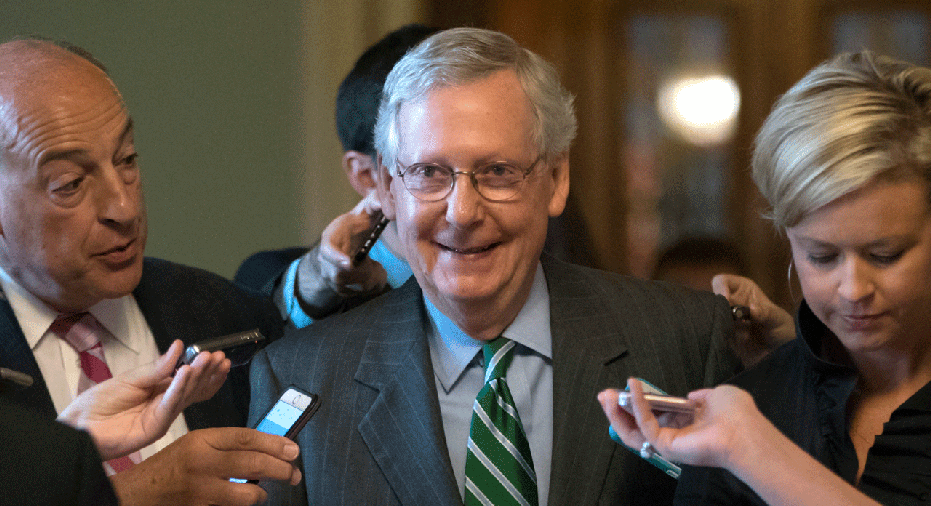Medicaid in cross hairs as Senate releases new health care draft

The Senate released its version of a bill to repeal and replace the Affordable Care Act Thursday, and one topic that’s getting a lot of attention is its plan to slow the expansion of Medicaid.
The program’s expansion, advanced under ObamaCare, is a controversial topic. While some believe curbing it will hurt America’s most vulnerable populations, Republicans think decreasing the number of enrollees is necessary to weed out individuals who don’t belong on it.
The Senate’s draft bill proposes gradually slowing the program’s expansion, less immediately than called for under the House plan, but it would ultimately result in deeper cuts to the program – returning funding to pre-ObamaCare levels by 2024. The bill would begin to unwind growth after 2020, which in turn, makes the Senate proposal a bit more moderate.
“By slowing the Medicaid expansion more gradually it allows more people who are lower-income workers to get enrolled on Medicaid than would otherwise happen,” Dr. Jeff Singer, CATO Institute adjunct scholar and general surgeon, told FOX Business.
Additionally, slowing the expansion at a more measured pace gives states time to transition to the new funding structure and figure out ways to continue providing care for the expansion population.
“The thing with the expansion population is that the government provides $10 for every $1 that states spend on [other populations] …It basically means that gradually over time the 10-for-one dollar match rate will be reduced [and brought in line] with what states have for the other sections of Medicaid,” Chris Pope, senior fellow at the Manhattan Institute, told FOX Business. “It’s not saying states can’t cover this group ... it just means states will get the same money for this group that they will get for other groups.”
The goal, Pope says, is to deliver better, targeted care to those who are unable to adequately provide those services for themselves.
The Senate’s more moderate proposal, however, could run into some challenges where approval is concerned. Democrats support continued expansion of the program and are unlikely to back a measure to end that.
“Senate Republicans made the devastation to working families and seniors with long-term care needs on Medicaid even more severe – destroying jobs across America,” House Minority Leader Nancy Pelosi said in a statement Thursday.
However, for some conservatives, the pace of reduction could also pose a problem.
“Medicaid was never intended to serve lower-income working people, but rather it was intended to serve those in true poverty … Slowing expansion should weed people out who don't belong in the program. Unfortunately, it slows the expansion too gradually, so it may not accomplish much in the way of weeding people out,” Singer said.
As of March 2017, about 69 million Americans were enrolled in Medicaid.
Similar to the House proposal— the Senate draft would also shrink the amount allocated to each state to fund the program by sending a fixed sum each year in the form of a block grant. However, under the Senate bill, that amount would grow more slowly.
While Singer believes the Senate proposal calls for returning to pre-ObamaCare funding levels too gradually, he says taxpayers and patients will benefit in the long run.
“The government will save money – but fewer working people will fall into the health care quicksand called ‘Medicaid,’” he said.



















